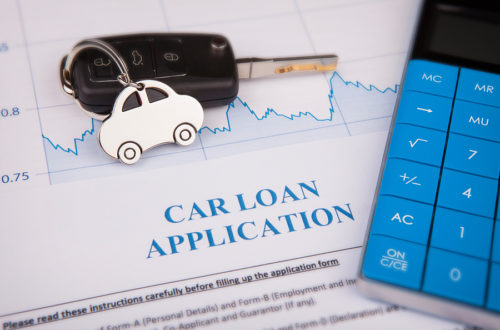Credit cards can be an excellent way to establish credit and pay for expenses, so long as the balance stays low and bills remain paid. However, if the balance gets out of hand, it can be very difficult to keep up with even a minimum monthly payment. According to CreditCards.com, Millennials, individuals between the ages of 23 and 38, are running into this exact problem when it comes to their credit card debt.
According to a new poll published by CreditCards.com, one in four millennials say that they have been carrying a credit card balance for at least one year. One in ten of millennials surveyed said they have been carrying a credit card balance for over five years with no end in sight.
Depending on how high the balance is, it can be very difficult to pay off the total amount due. Most monthly minimum payments only end up paying the interest owed from month-to-month. With the average credit card APR at 17.57 percent, it is easy to see how making progress on paying down the principal on the card can be an uphill battle. No matter how hard the person tries, the only progress he or she will make by paying the minimum payment or a small amount above that set payment will be on interest and possibly very little part of the principal.
The average American household has $5,700 in credit card debt. For individuals under the age of 35, that amount is $5,808. It can be very difficult to ever see an end to that balance when only making the minimum monthly payments. When all is said and done, you can end up paying double that balance in interest alone.
Of those millennials surveyed, most said that their credit card debt was from day-to-day expenses, including food, gas, utilities and child care. Others reported that their large balances were a result unexpected car repairs or medical expenses. Unlike previous generations, these young consumers are already struggling in paying other debt, mainly student loans. With the average student graduating from college with $37,000 in student loan debt, most of their paycheck goes to paying for housing and their student loan payments. With less money to put towards other expenses, they may rely heavily on credit cards, but when those balances get too high, they simply do not have the income left to pay off the large balance.
One positive piece of news is the fact that many millennials are already aware of the fact that credit card debt is a big problem. Many are choosing to not take on a credit cards or are spending less on extraneous expenses
While it requires discipline on the part of the consumer, financial experts recommend that an emergency savings fund be built up for these types of situations. Most recommend that you have at least three months of living expenses set aside in a savings account for emergencies. These accounts can be built up over time by you taking a small percentage of your paycheck monthly and depositing it directly into a savings account. That way, the money comes out immediately and the account is able to grow.
Click here to read more.
If you have questions on this topic or are in financial crisis and considering filing for bankruptcy, contact an experienced Miami bankruptcy attorney who can advise you of all of your options. As an experienced CPA as well as a proven bankruptcy lawyer, Timothy Kingcade knows how to help clients take full advantage of the bankruptcy laws to protect their assets and get successful results. Since 1996 Kingcade Garcia McMaken has been helping people from all walks of life build a better tomorrow. Our attorneys’ help thousands of people every year take advantage of their rights under bankruptcy protection to restart, rebuild and recover. The day you hire our firm, we will contact your creditors to stop the harassment. You can also find useful consumer information on the Kingcade Garcia McMaken website at www.miamibankruptcy.com.


